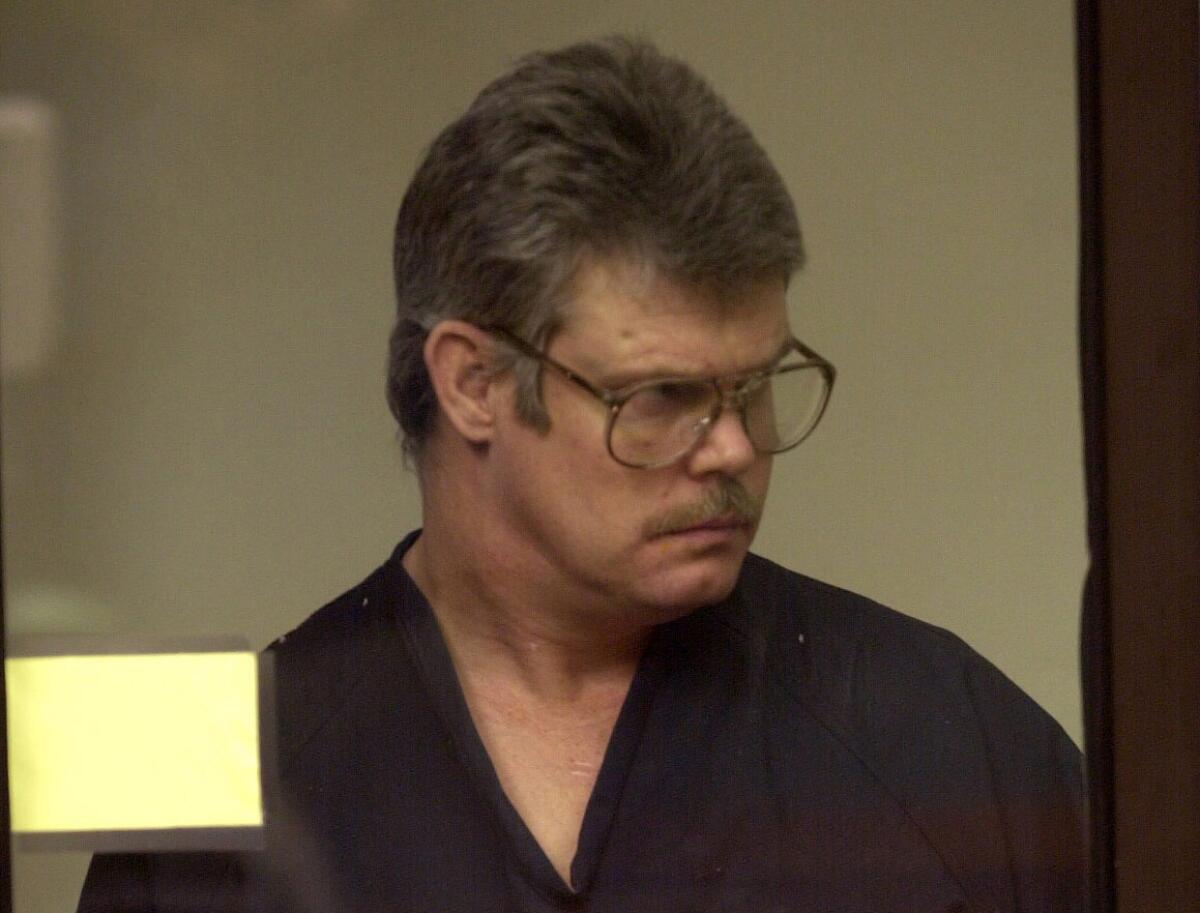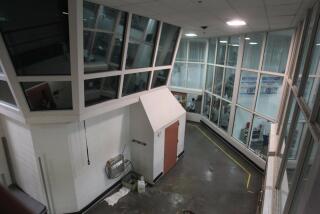Death row inmate Scott Erskine, who murdered two boys in San Diego, dies of COVID-19

San Diego — Scott Erskine, who was on death row for the gruesome 1993 abduction and murder of 13-year-old Charlie Keever and his 9-year-old friend Jonathan Sellers — in a case that haunted the county for almost a decade before it was solved — died this week from what prison officials said appear to be complications from COVID-19.
Erskine was 57 and died Friday morning at an outside hospital, according to a statement by the California Department of Corrections and Rehabilitation. The mothers of the two boys, Maria Keever and Milena (Phillips) Sellers, said they received phone calls from prison officials Friday morning informing them of the death.
Erskine had been on death row in San Quentin State Prison since 2004 but was in prison far longer for other crimes. In 2001 he was serving a 70-year sentence for raping a woman when he was charged in the murder of the boys, eight years after their bodies were found in a makeshift fort in heavy brush on a bank of the Otay River.
The children had been bound and gagged, and there were signs of violent sexual assault and torture.
The boys were friends who had left their homes for a bike ride when Erskine intercepted them. Many details of their deaths were revealed later in court, but it remains a mystery how Erskine lured the boys to the secluded spot.
Their bodies were not found for two days, and the crime went unsolved for years. Detectives who worked the case later said it was the worst case they had ever worked that went unsolved for so long.
In 2001, amid advances in DNA forensics, evidence taken from the crime scene was tested. Erskine’s DNA was found in a cotton swab taken from the body of one of the boys and on two cigarette butts found in the fort.
Erskine went on trial in 2002 for the murders, and after two penalty phases — the first jury could not decide on death or life with no parole — he was sent to death row in September 2004.
Both mothers grimly sat through years of hearings, listening to details of how their children died. On Friday Maria Keever said she was shocked when she first heard the news of Erskine’s death from a corrections official in the morning.
She said she cried but did not know exactly why. “Some mixed feelings now,” she said.
Keever said she long had hoped to be able to speak with Erskine, to ask him details about what had happened and why. She said he refused. Now she won’t be able to have that conversation, she said.
“I hoped he would change his mind, but he did not want to talk to me,” she said. “It seems so final.
“I’m never going to know now.”
Phillips said she also cried at first, in shock and as a kind of release.
“It is over, that part is over,” she said. “He’s gone. I don’t have to think of him. I don’t have to go to trials or any courts.
“I have a lot of emotions going through me because of this,” she said later. “In a way I feel like we can breathe, finally I can exhale a little bit, let the boys rest, let them down to rest and move on from that.”
The boys were not forgotten by their community. In 2012 a park at the southern end of San Diego Bay along Bayshore Bikeway was dedicated in their names.
The mothers started the Jonathan Sellers and Charlie Keever Foundation, which is dedicated to promoting child safety and well-being, preventing child abduction and exploitation, and providing support to families who have lost a loved one to violence.
Last year the state Supreme Court upheld Erskine’s death sentence, but he had years more of appeals ahead. At that time his lawyer said he had been hospitalized with heart and lung problems.
Since the COVID-19 pandemic began many people who have died from the disease are known to have had underlying medical conditions that contributed to their death.
Another death row inmate, Manuel Alvarez, 59, also died Thursday at an outside hospital of what appeared to be COVID-19 complications, corrections officials said. He was convicted of committing murder and rape during a four-day rampage in Sacramento County in 1987.
Erskine and Alvarez are the third and fourth death row prisoners in the past 10 days to die.
On June 24 Richard Stitely, 71, was found unresponsive in his cell. A death row inmate since 1992 after the rape and murder of a woman in Los Angeles County in 1990, Stitely was found to have tested positive for the coronavirus.
On Wednesday 75-year-old Joseph Cordova also was found unresponsive in his cell and pronounced dead. He had been on death row since 2007, after being convicted of raping and murdering an 8-year-old girl in Contra Costa County in 1979. The cause of death and his COVID-19 status have not been determined.
San Quentin, where the state’s 723 death row inmates are housed, is in the midst of a raging outbreak of COVID-19, the disease caused by the novel coronavirus. As of Thursday there were 1,383 active cases in the prison, which houses about 3,400 inmates, officials said. The bulk of those cases, 944, have come in the past two weeks, according to the department’s COVID-19 tracker.
All of the prison’s cases began in June after the May 30 transfer of 100 prisoners from the state prison in Chino, which at the time had one of the highest rates of COVID-19 infections in the state system.
Moran writes for the San Diego Union-Tribune.
More to Read
Sign up for Essential California
The most important California stories and recommendations in your inbox every morning.
You may occasionally receive promotional content from the Los Angeles Times.










